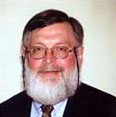The Purpose of Dialogue is to Discover the Truth
 Tuesday, April 21, 2009 at 7:30PM
Tuesday, April 21, 2009 at 7:30PM Cultural Implications of Religions in Public Life
Speakers:
Archbishop Pietro SAMBI, Apostolic Nuncio of the Holy See to the United States
David FARBER, Member of the American Jewish Committee and the Jewish Federation of Greater Washington
Imam Yahya HENDI, Muslim chaplain at Georgetown University and member of the Islamic Jurisprudence Council of North America
Marcello PERA, Former President of the Italian Senate, co-author of Without Roots with Joseph Ratzinger and author of Why We Must Call Ourselves Christians, with a Letter-Preface by His Holiness Benedict XVI
David SCHINDLER, Dean of the John Paul II Institute for Studies on Marriage and Family at the Catholic University of America
Presented by Crossroads Cultural Center, on the occasion of the first anniversary of the Papal visit to the U.S.
READ A CATHOLIC STANDARD ARTICLE ON THE CONFERENCE
The panel seeks to explore recent developments in the approach to intercultural dialogue, on the anniversary of the Pontiff’s speech to leaders of world religions. The John Paul II Cultural Center is the place where the Holy Father gave his address one year ago. The idea for the conference is to explore the direction that interreligious/intercultural dialogue is taking, starting with the speech the Pope gave here in the US and considering recent developments.
From the Address of Benedict XVI to the Representatives of Other Religions, April 2008, Washington, DC:
I have noticed a growing interest among governments to sponsor programs intended to promote interreligious and intercultural dialogue. These are praiseworthy initiatives. At the same time, religious freedom, interreligious dialogue and faith-based education aim at something more than a consensus regarding ways to implement practical strategies for advancing peace. The broader purpose of dialogue is to discover the truth. What is the origin and destiny of mankind? What are good and evil? What awaits us at the end of our earthly existence? Only by addressing these deeper questions can we build a solid basis for the peace and security of the human family, for "wherever and whenever men and women are enlightened by the splendor of truth, they naturally set out on the path of peace" (Message for the 2006 World Day of Peace, 3). We are living in an age when these questions are too often marginalized. Yet they can never be erased from the human heart. Throughout history, men and women have striven to articulate their restlessness with this passing world…
From the letter of Benedict XVI to Marcello Pera on the occasion of the publication in Italian of the book Perche’ dobbiamo dirci cristiani (Why We Must Call Ourselves Christian), September 2008
You explain with great clarity that an interreligious dialogue in the strict sense of the world is not possible, although the intercultural dialogue on the cultural consequences of the basic religious decision has become all the more urgent. While a true dialogue on the latter is not possible without setting one’s own faith aside, it is necessary to address in a public debate the cultural consequences of basic religious decisions. Here dialogue, mutual correction and reciprocal enrichment are possible and necessary
About this Event
Date: Tuesday, April 21, 2009
Time: 7:30pm
Location: The Pope John Paul II Cultural Center
3900 Harewood Rd., NE, Washington, DC 20017 Metro: Red Line - Brookland/CUA Station
About the Speakers

Arch.Pietro Sambi
Apostolic Nuncio of the Holy See to the United States

David Farber
Member of the American Jewish Committee and the Jewish Federation of Greater Washington

Imam Yahya Hendi
Muslim chaplain at Georgetown University and member of the Islamic Jurisprudence Council of North America

Marcello Pera
Former President of the Italian Senate

David Schindler
Dean of the John Paul II Institute for Studies on Marriage and Family at the Catholic University of America
Invitation
Download the Invitation hereReport
Read the report hereDocuments
Read the speech by Marcello Pera (.doc)Read the speech by David Schindler
>Photos



Reader Comments